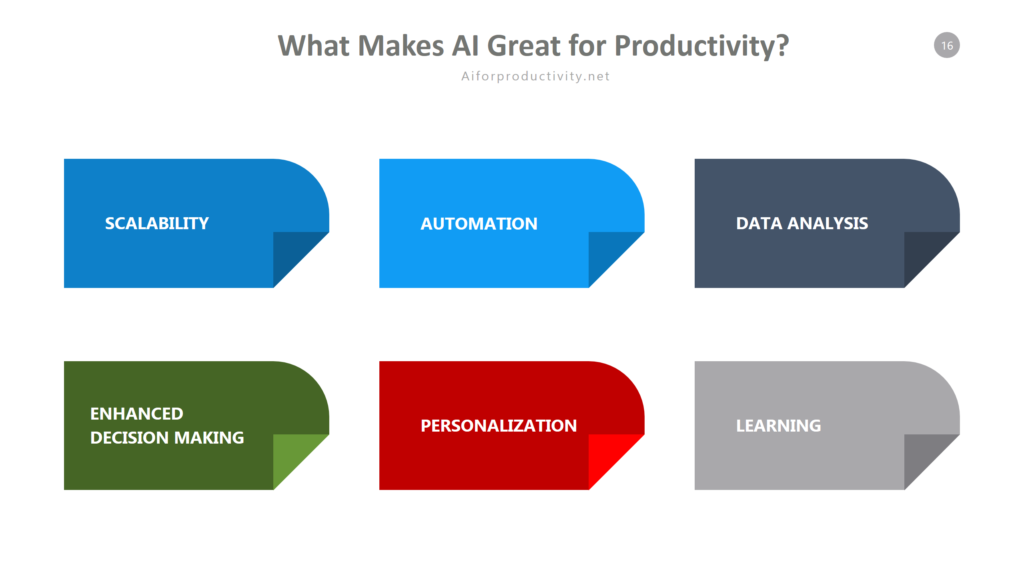In our rapidly evolving digital era, the term Artificial Intelligence (AI) has become a beacon of efficiency and productivity. It’s almost impossible not to have come across this term. But why is AI hailed as such a potent instrument for boosting productivity? This article will unravel the fundamental aspects of AI that make it an essential tool for anyone seeking to supercharge their efficiency and productivity. Trust me, once you understand its potential, you’ll see why it’s impossible to overlook its value in today’s world.
Scalability
AI’s ability to handle tasks at scale is unmatched. Whether it’s processing thousands of data points or managing numerous customer interactions, AI does it with ease. This scalability is key in industries where large volumes of data and interactions are the norm, allowing businesses to expand their operations without a proportional increase in workload or resources.
Automation
The cornerstone of AI’s productivity prowess is its capacity for automation. From mundane tasks like scheduling and data entry to more complex operations like supply chain management, AI can automate processes to a degree that drastically reduces human workload, minimizes errors, while speeding up operations.
Data Analysis
AI excels in analyzing vast amounts of data to extract meaningful insights. This ability transforms raw data into valuable information that can inform strategic decisions, optimize processes, and identify trends and patterns that would be impossible for a human to discern in a reasonable timeframe.

Enhanced Decision Making
With AI, decision-making becomes data-driven and precise. AI algorithms can predict outcomes, assess risks, and provide recommendations based on data analysis. This leads to more informed and accurate decisions, reducing guesswork and enhancing overall business strategy.
Personalization
AI can tailor experiences and workflows to individual needs. In learning and development, for instance, AI can create customized courses that adapt to the learner’s pace and style, making education more effective and time efficient.
Learning
AI systems are designed to learn and improve over time. This means that the more they are used, the better they become at optimizing tasks and processes. In a business context, this continuous improvement leads to ever-increasing levels of productivity.
Conclusion
The influence of AI on productivity is deep and diverse, and it’s only expanding. The power of AI to scale operations, automate tasks, dissect data, and tailor experiences makes it an impressive tool for enhancing productivity. As AI continues its evolution journey, its potential to amplify efficiency in both personal and professional spheres is poised to increase. Welcoming AI into our lives isn’t just about keeping up with the current times; it’s about staying one step ahead. It signifies a pathway towards success that is thoughtful and forward-looking.

